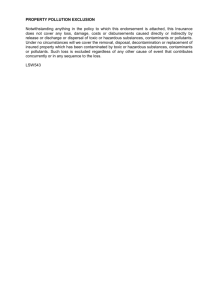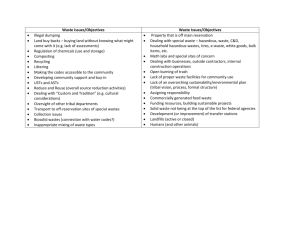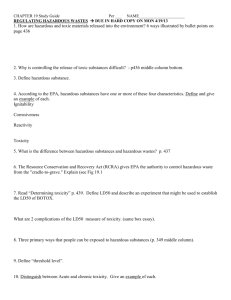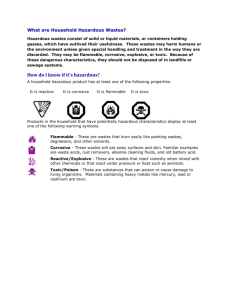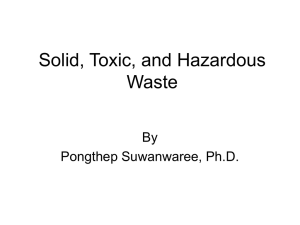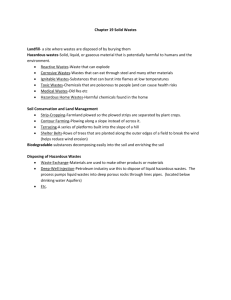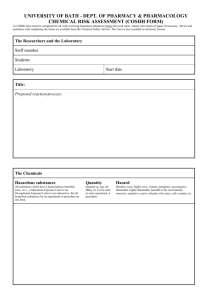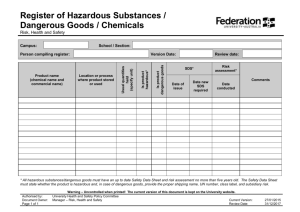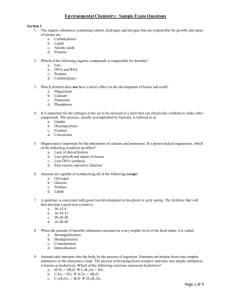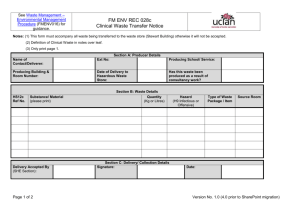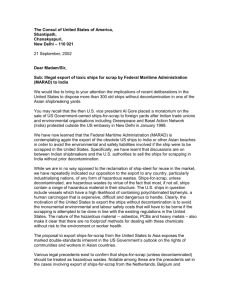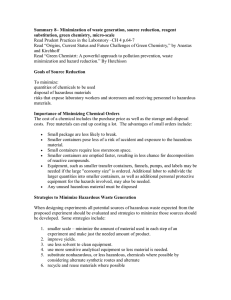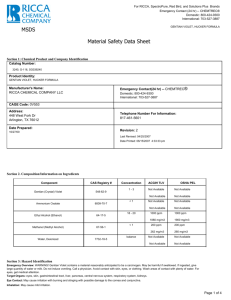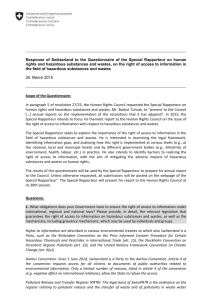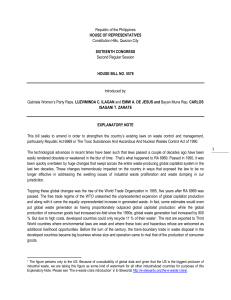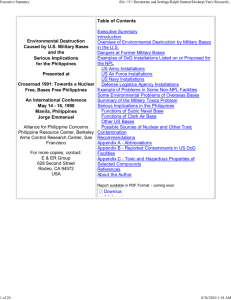Environment & Starwood Hotels
advertisement
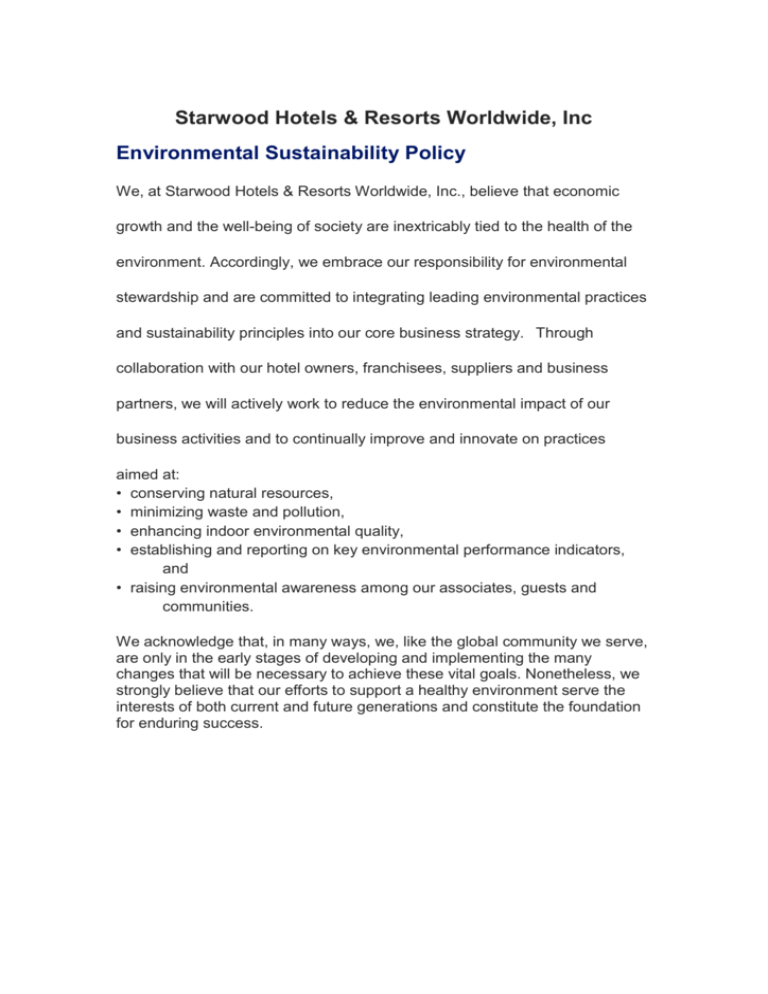
Starwood Hotels & Resorts Worldwide, Inc Environmental Sustainability Policy We, at Starwood Hotels & Resorts Worldwide, Inc., believe that economic growth and the well-being of society are inextricably tied to the health of the environment. Accordingly, we embrace our responsibility for environmental stewardship and are committed to integrating leading environmental practices and sustainability principles into our core business strategy. Through collaboration with our hotel owners, franchisees, suppliers and business partners, we will actively work to reduce the environmental impact of our business activities and to continually improve and innovate on practices aimed at: • conserving natural resources, • minimizing waste and pollution, • enhancing indoor environmental quality, • establishing and reporting on key environmental performance indicators, and • raising environmental awareness among our associates, guests and communities. We acknowledge that, in many ways, we, like the global community we serve, are only in the early stages of developing and implementing the many changes that will be necessary to achieve these vital goals. Nonetheless, we strongly believe that our efforts to support a healthy environment serve the interests of both current and future generations and constitute the foundation for enduring success. Environmental Matters We are subject to certain requirements and potential liabilities under various foreign and U.S. federal, state and local environmental laws, ordinances and regulations (“Environmental Laws”). Under such laws, we could be held liable for the costs of removing or cleaning up hazardous or toxic substances at, on, under, or in our currently or formerly owned or operated properties. Such laws often impose liability without regard to whether the owner or operator knew of, or was responsible for, the presence of such hazardous or toxic substances. The presence of hazardous or toxic substances may adversely affect the owner’s ability to sell or rent such real property or to borrow using such real property as collateral. Persons who arrange for the disposal or treatment of hazardous or toxic wastes may be liable for the costs of removal or remediation of such wastes at the treatment, storage or disposal facility, regardless of whether such facility is owned or operated by such person. We use certain substances and generate certain wastes that may be deemed hazardous or toxic under applicable Environmental Laws, and we from time to time have incurred, and in the future may incur, costs related to cleaning up contamination resulting from historic uses of certain of our current or former properties or our treatment, storage or disposal of wastes at facilities owned by others. Other Environmental Laws govern occupational exposure to asbestos-containing materials (“ACMs”) and require abatement or removal of certain ACMs (limited quantities of which are present in various building materials such as spray-on insulation, floor coverings, ceiling coverings, tiles, decorative treatments and piping located at certain of our hotels) in the event of damage or demolition, or certain renovations or remodeling. Environmental Laws also regulate polychlorinated biphenyls (“PCBs”), which may be present in electrical equipment. A number of our hotels have underground storage tanks (“USTs”) and equipment containing chlorofluorocarbons (“CFCs”); the operation and subsequent removal or upgrading of certain USTs and the use of equipment containing CFCs also are regulated by Environmental Laws. In connection with our ownership, operation and management of our properties, we could be held liable for costs of remedial or other action with respect to PCBs, USTs or CFCs. Congress and some states are considering or have undertaken actions to regulate and reduce greenhouse gas emissions. New or revised laws and regulations or new interpretations of existing laws and regulations, such as those related to climate change, could affect the operation of our hotels and/or result in significant additional expense and operating restrictions. The cost impact of such legislation, regulation, or new interpretations would depend upon the specific requirements enacted and cannot be determined at this time. Environmental Laws are not the only source of environmental liability. Under common law, owners and operators of real property may face liability for personal injury or property damage because of various environmental conditions such as alleged exposure to hazardous or toxic substances (including, but not limited to, ACMs, PCBs and CFCs), poor indoor air quality, radon or poor drinking water quality. Although we have incurred and expect to incur remediation and various environmental-related costs during the ordinary course of operations, management does not anticipate that such costs will have a material adverse effect on our operations or financial condition.
